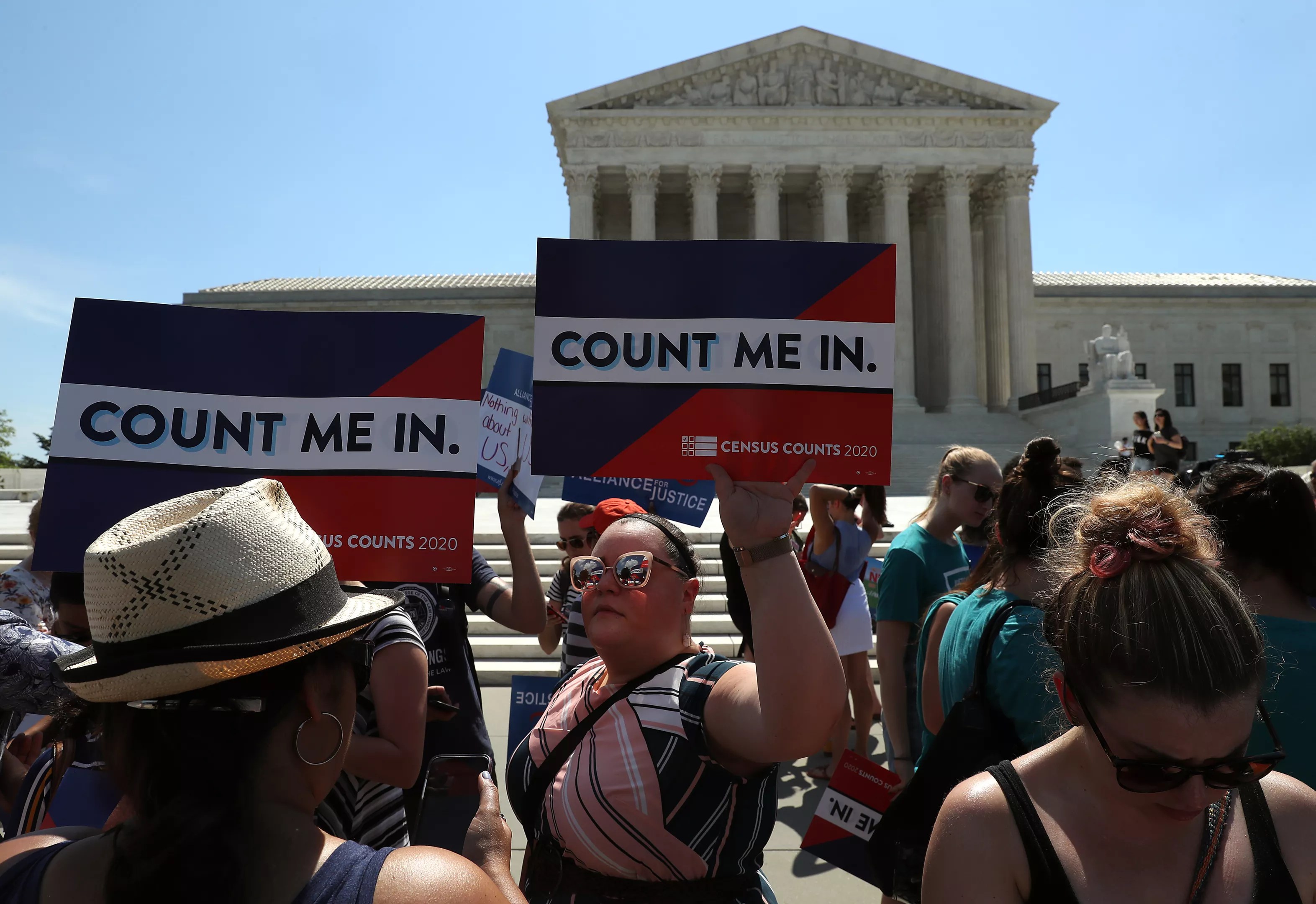
Mark Wilson / Getty Images

Audio By Carbonatix
Although a proposed citizenship question on the 2020 census appears dead for good and all, the long legal battle over it may have done lasting damage in Texas, the head of a nonpartisan think tank said Thursday.
While she welcomed President Donald Trump’s announcement that his administration was backing away from the proposed census question, Ann Beeson, CEO of the Austin-based Center for Public Policy Priorities, said the lengthy legal fight over the question could make undocumented immigrants and their families reluctant to answer when census takers knock on their door. That fear could lead to undercounting, which could cost Texas hundreds of millions of dollars in federal funding, she said.
“The very long battle over whether the administration could ask about citizenship on the census has definitely created confusion and fear about what the administration is going to do with the information from the census,” Beeson said.
Trump announced Thursday afternoon that his administration was dropping the idea of putting a question on the 2020 census asking, “Is this person a citizen of the United States?” Instead, Trump directed Commerce Department officials to find another way of collecting that information.
The announcement came weeks after the U.S. Supreme Court blocked the administration from including the question on the census and a week after Department of Justice officials confirmed that census forms had gone to print without the question. But on July 3, Trump tweeted that his administration was “absolutely moving forward” with efforts to put the question on the census.
“I am doing my absolute best to figure out what’s going on.” — White House special counsel Joshua Gardner
Following the tweet, a federal judge in Maryland called White House lawyers and attorneys for the plaintiffs onto a conference call to try to find out exactly what was going on. White House special counsel Joshua Gardner, who was tasked with defending the question in court, seemed baffled, according to a transcript of the conversation.
“The tweet this morning was the first I had heard of the president’s position on this issue, just like the plaintiffs and your honor,” Gardner said. “I do not have a deeper understanding of what that means at this juncture other than what the president has tweeted. But, obviously, as you can imagine, I am doing my absolute best to figure out what’s going on.”
Beeson said that extended period of confusion about whether the question would be included has left immigrant families fearful about the census. Even before the citizenship question, immigrant families were at risk of being undercounted, Beeson said. Fear and confusion about whether the question will be included will make those families less likely to fill out the census, she said.
That affects not only undocumented immigrants, but also immigrants who are in the country legally, Beeson said. Most undocumented immigrants live in households with relatives who are citizens, she said. Because census forms are filled out by household, census takers would miss entire families, some of whom are here legally.
That reluctance to fill out census forms means undercounting, which has wide-ranging implications for the next decade, Beeson said. If the census undercounts the state’s population by just 1%, the policy institute estimates the state could stand to lose about $300 million in federal funding for things like health care, food assistance, housing and student loans.
If the state’s population is undercounted by 8%, that lost funding could be as much as $2 billion, the group estimates.
But Beeson said the fact that the administration is walking away from the question is good news. It means community leaders across Texas can get to work on building awareness of the census and helping residents understand why it’s important that they fill it out.